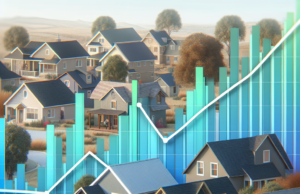Unveiling the Hidden Truths: The Dark Side of Real Estate Development
The real estate development industry is often heralded as a catalyst for economic growth and urban revitalization. However, beneath the surface of glossy brochures and ambitious projects lies a complex web of challenges and ethical dilemmas. This article seeks to unveil the hidden truths of real estate development, exploring its multifaceted impact on local communities, the environment, and the regulatory landscape. By examining these critical issues, we aim to foster a more nuanced understanding of the dark side of real estate development.
Understanding the Real Estate Development Landscape: An Overview of Industry Practices
Real estate development encompasses a wide array of activities, including land acquisition, construction, and property management. Developers often collaborate with architects, engineers, and urban planners to create projects that promise economic benefits and aesthetic enhancements. However, the industry is not without its pitfalls. Common practices such as speculative development, where projects are initiated without firm demand, can lead to oversupply and market volatility. Additionally, the reliance on public-private partnerships often blurs the lines of accountability, raising concerns about transparency and ethical conduct. As the industry evolves, it is crucial to scrutinize these practices to ensure they serve the best interests of all stakeholders involved.
The Economic Impact of Real Estate Development: Boon or Bane for Local Communities?
Real estate development can significantly influence local economies, generating jobs, increasing tax revenues, and enhancing property values. However, the benefits are not always evenly distributed. While new developments may create employment opportunities, they can also lead to gentrification, displacing long-term residents and altering the socio-economic fabric of neighborhoods. Furthermore, the influx of wealthier residents can strain local resources and services, exacerbating inequalities. As communities grapple with these dynamics, it is essential to engage in comprehensive planning that prioritizes inclusive growth and considers the needs of all residents, particularly those from marginalized backgrounds.
Environmental Consequences: Examining the Ecological Footprint of Development Projects
The environmental implications of real estate development are profound and often overlooked. Construction activities can lead to habitat destruction, increased pollution, and significant carbon emissions. Moreover, the expansion of urban areas frequently encroaches on green spaces and agricultural land, contributing to biodiversity loss. Developers are increasingly adopting sustainable practices, such as green building techniques and eco-friendly materials, yet these measures are not universally implemented. The challenge lies in balancing development with environmental stewardship, necessitating a commitment to sustainable practices that mitigate ecological harm while still meeting the demands of a growing population.
Social Displacement: How Real Estate Development Affects Vulnerable Populations
One of the most pressing issues associated with real estate development is social displacement. As new projects emerge, property values often rise, leading to increased rents and property taxes that can push low-income residents out of their homes. This phenomenon is particularly acute in urban areas, where the demand for housing often outstrips supply. Vulnerable populations, including low-income families, the elderly, and people of color, are disproportionately affected by these changes. To address this issue, developers and policymakers must prioritize affordable housing initiatives and implement measures that protect existing residents from displacement, ensuring that the benefits of development are shared equitably.
The Role of Regulation: Navigating the Complexities of Zoning and Compliance Issues
Regulatory frameworks play a crucial role in shaping real estate development, with zoning laws and compliance requirements designed to guide growth and protect community interests. However, navigating these regulations can be complex and contentious. Developers often face challenges in obtaining permits, leading to delays and increased costs. Conversely, lax regulations can result in unchecked development that undermines community goals and environmental standards. Striking a balance between facilitating development and safeguarding public interests requires ongoing dialogue among stakeholders, including government officials, community members, and developers, to create a regulatory environment that fosters responsible growth.
Uncovering Corruption: The Influence of Greed and Power in Real Estate Transactions
Corruption remains a pervasive issue within the real estate development sector, often fueled by the intersection of greed and power. Instances of bribery, kickbacks, and unethical lobbying can undermine the integrity of the development process, leading to projects that prioritize profit over public good. Such practices not only erode public trust but also exacerbate inequalities, as those with financial resources manipulate systems to their advantage. Addressing corruption requires robust oversight mechanisms, transparency in transactions, and a commitment to ethical conduct from all parties involved. By fostering a culture of accountability, the industry can work towards rebuilding trust and ensuring that development serves the broader community.
The dark side of real estate development reveals a complex interplay of economic, environmental, and social factors that must be carefully navigated. While the industry has the potential to drive growth and innovation, it also poses significant risks to local communities and the environment. By acknowledging these challenges and prioritizing ethical practices, sustainable development, and inclusive policies, stakeholders can work together to create a real estate landscape that benefits all members of society. As we move forward, it is imperative to remain vigilant and advocate for transparency, accountability, and equity in real estate development to ensure a brighter future for our communities.
















